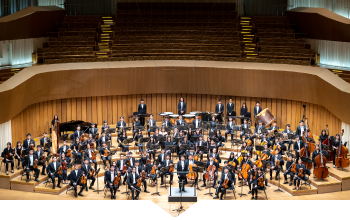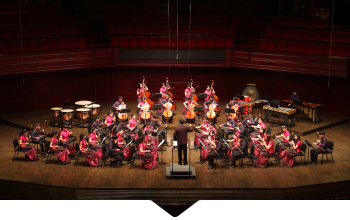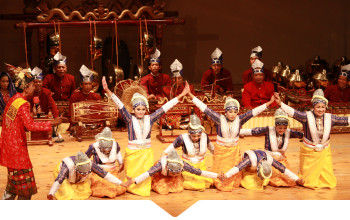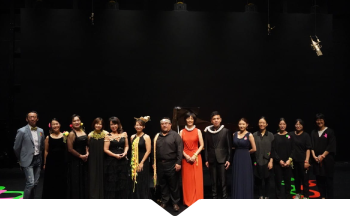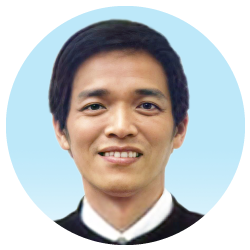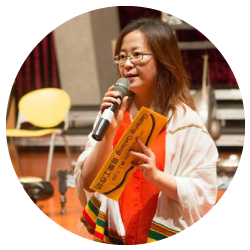In the second year after the Tainan National University of the Arts was founded (1997), in compliance with the
promulgation of the Art Education Law, the first seven-year music department was established. Then the
seven-year Chinese music department was established to enroll students who are good at playing. Gradruating
from junior high school of Chinese and Western musical instruments are trained to become professional
musicians with both superb performance skills and rich humanistic qualities. In recent years, an advanced
system of master's classes has been established to enhance the sophistication and validity of professional
performance and theoretical research. In 2002 the Institute of Ethnomusicology and an in-service class were
established, and in 2003, the Institute of Collaborative Piano was established. At the same time, to cooperate
with the Ministry of Education’s Humanities Program which emphasizes the development direction
of globalization and social diversification, the "Asia-Pacific Music Research Center" was established in
2008. , and then established the "Music Performance and Industry-Academic Cooperation Center" in 2015
through a task force.
The music college has more than 30 full-time teachers and more than 80 part-time teachers, most of whom are
performers or music scholars who have studied abroad. In addition to employing famous foreign professors to
teach for a long time, there is also a considerable proportion of young performers and scholars.
Performance skills and regular performance experience comprehensively promote students' high-quality
observation and practical results in this field. There are more than 130 teachers plus foreign experts and
scholars (seminar and workshop professors) from various domestic music schools and A professional group that
injects clear and fragrant artistic living water into music teaching. There are more than 400 students in the
music college, mainly focusing on performance and research. The courses cover traditional, western and world
music to diversify. Through the teaching of professional courses such as performance, theory and research,
we have formed a complete academic system and professional learning with an elegant academic style.
Department
Doctoral Program in
Applied Music
The doctoral program in Applied Music of music college was approved by the Ministry of Education in 2022 .
The doctoral program emphasizes the combination of social practice, music theory and interdisciplinary
courses, and uses pragmatic courses with professional abilities and experience to cultivate problem-oriented
and innovative thinking talents. It draws on the theoretical integration of humanities and social sciences,
natural sciences and musicology such as anthropology, sociology, religion, political science, area studies,
physical acoustics, music technology, etc., while also emphasizing traditional music, popular music, drama,
dance, visual The combination of different art forms such as video aims to emphasize social connection and
sustainable development, strengthen musical practice and interdisciplinary field research, and integrate
with international trends and trends as the development direction to achieve the cross-field goal of
academic theory and practice.
The enrollment plan for this doctoral program will be divided into two groups: "applied ethnomusicology
" and "music technology":
1.Applied Ethnomusicology Group—In addition to caring about the inheritance and sustainable management
of cultural assets of traditional performing arts (including music, dance, and drama), it also conducts
in-depth research into the performing arts culture of indigenous peoples, Taiwanese new immigrants, and
migrant workers. Development, strengthening the interaction and correlation between Taiwan and Asian
music culture, and providing research on pop music and youth care, music and social justice, educational
ethnomusicology, medical ethnomusicology, and overseas Chinese music. main development direction.
2.Music Technology Group - dedicated to the cross-scientific integration of sound and computer music,
covering the creation, generation, transmission, perception and other sound transmission processes. In
addition to cultivating immersive sound professionals, artificial intelligence (AI) and machine learning
(ML) are also used to simultaneously achieve the goal of automatic music generation, assisted creation,
human-computer interactive improvisation, foley, mixing and other production projects. Have the ability
to possess auditory artistic literacy, understand the operating principles of technology, and make full
use of relevant software and hardware tools. It is expected that based on musicology theory, music creation
and scientific calculation, the integrity and immersive overall experience of cross-disciplinary artistic
works and performances will be constructed. And through complete software and hardware construction and
research resources, we analyze the demand of artists and industry, and develop the possibilities of future
music-related technologies.
Teachers: Introduction
to current teachers and expertise

Made
Mantle Hood
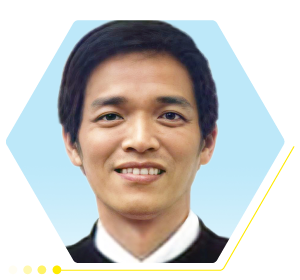
Weng,
Chih Wen
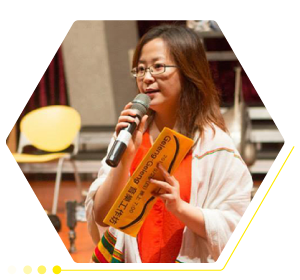
Chu,
Meng Tze
Admission for
Overseas Students
Please select the corresponding identity and download the file.
